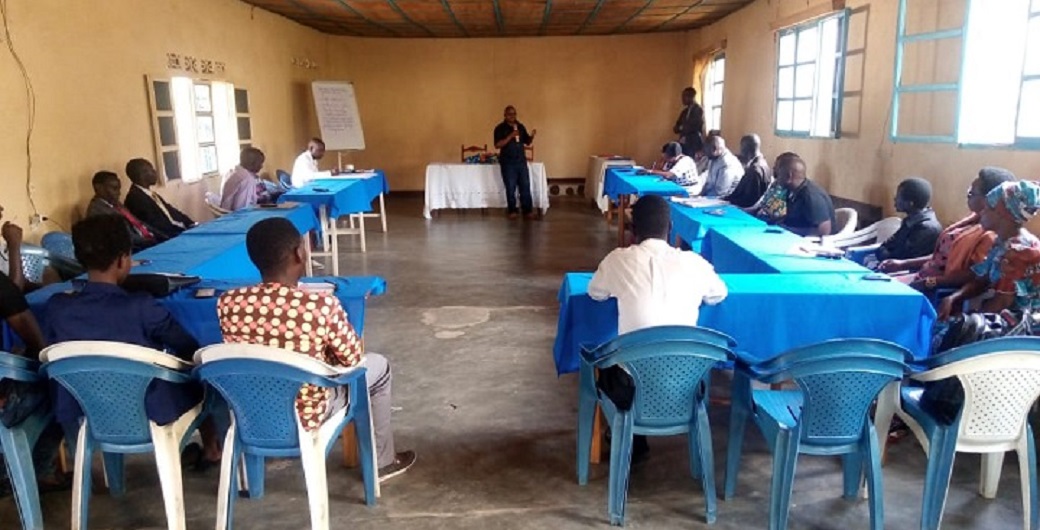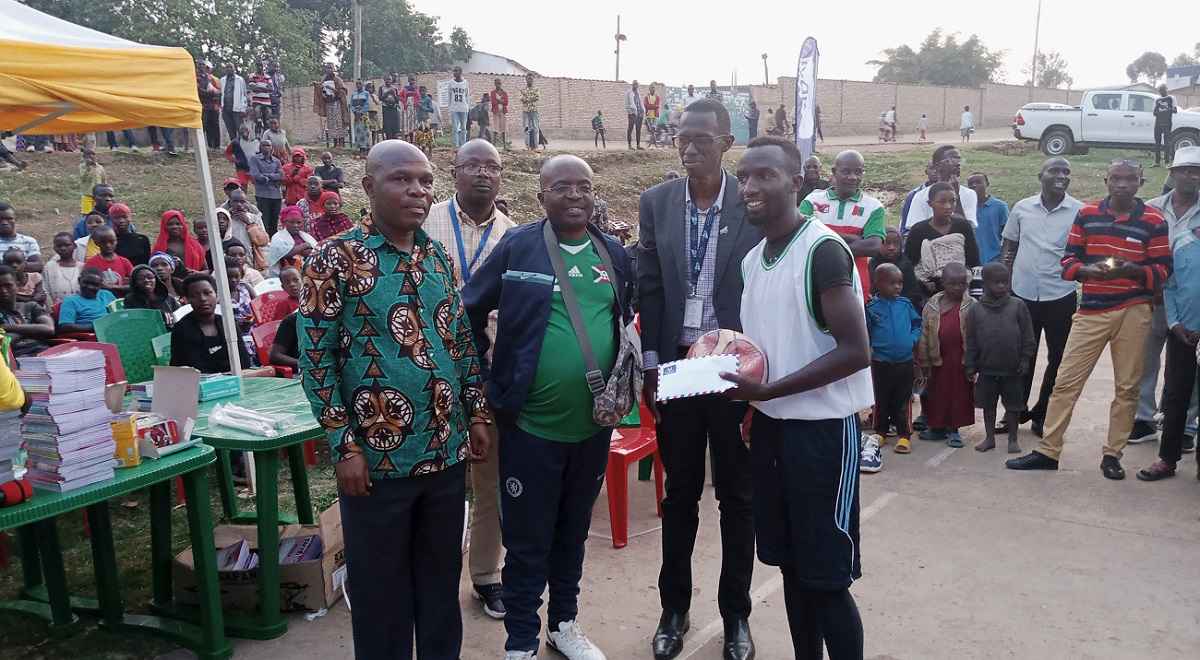
From 03 to 06 December 2019, as part of the implementation of the Menyumenyeshe project, Service Yezu Mwiza in collaboration with Care Burundi and the Ministry of Interior and Patriotic Training, organized exchange sessions and sensitization on effective communication on SRH for administrative, parents and young people.
These sessions were held throughout CARE's area of intervention as part of the Menyumenyeshe Project namely Gitega province, Muyinga, Kirundo, Kayanza, Cibitoke, Bubanza, Bujumbura and Bujumbura Mairie provinces.
The purpose of these sessions was to promote intergenerational dialogue so that the administrative and parents become aware through dialogue of the challenges that young people face in the community as far as SRH is concerned.

During these sessions, we noticed that the Joint Program has a solid foundation in the intervention area and its impact in the community will be sustained after the project (according to the interventions of the participants):
This is the case of Socio-Cultural Adviser of the Governor of Kirundo: "It is better to understand the feelings of children as they are, rather than to take directive approach because the needs of these children are totally different from ours. We have already noticed that parents who have followed SRH training, listen and communicate better with their children and discover a new kind of appreciation of children's needs towards parents, in a dialogue setting. From there, children are motivated to put these tips into practice because they were involved in its development. The reprimands and warnings almost disappear and I am convinced that the future of the country depends on the good socio-sanitary situation of families. "
These provincial sessions helped to strengthen effective communication between the local administration, the associations that support young people, parents and young people to get involved in the fight against unwanted pregnancies, gender-based violence and early marriage that is a source of conflict in the community.
It should be noted that at the end of these exchange sessions, the objectives were achieved because the administrative staff committed to integrate action plans for sexual and reproductive health of young people through the youth centers, and with the young people. And with Parents, they agreed to dedicate the day of Sunday to the dialogues with their children on the SRH and to use clear language in order to develop good affective relations between them and children.
Young people who were present at these sessions, they promised to call other young people to promote responsible sexuality and to regularly visit the youth-friendly health centers to acquire good information on the SRH to fight against non-sexual pregnancies, early marriages and sexually transmitted diseases.
SYM: Distribution of school kits to members of associations of people affected by leprosy

SYM: Sensitization on pre and post-exposure to HIV in Kayanza and Ngozi
SYM: Managing co-morbidities among people living with HIV
SYM: Quarterly meeting of community relays
Distribution of work tools to young volunteers and to the pillars of the SRH community solutions project called